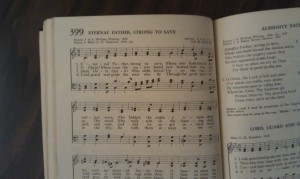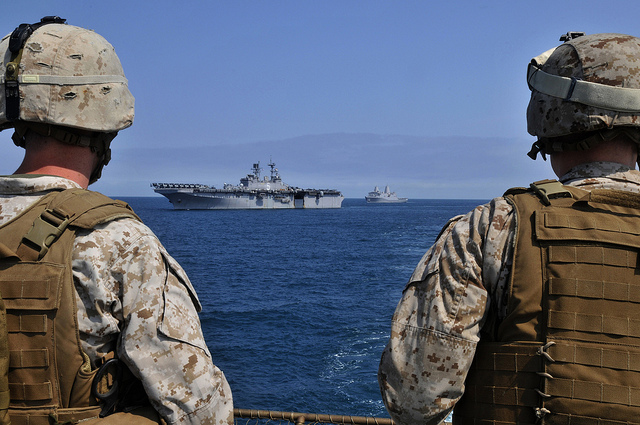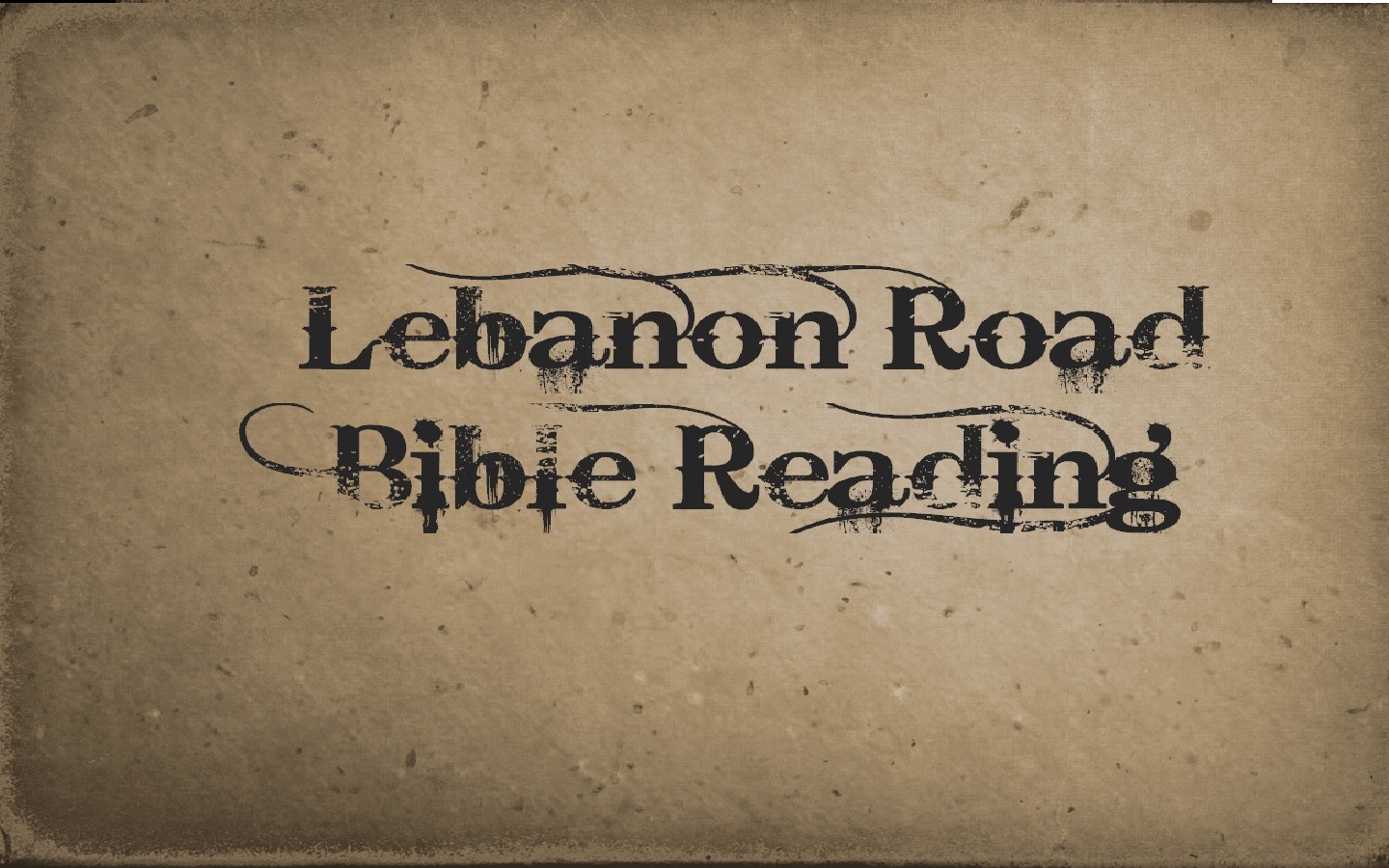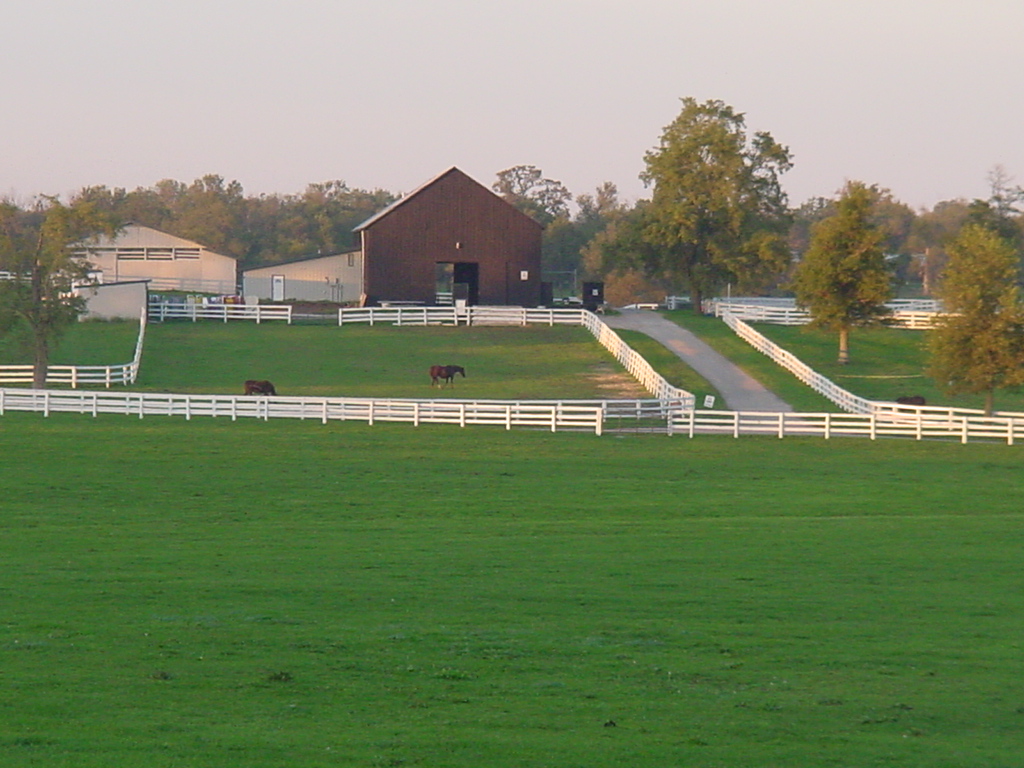Hymn Reflection : “Eternal Father, Strong to Save”
Inspired by a psalm, this hymn is now commonly associated with the armed forces (which explains the picture at the end of this post from my hymnal collection). In fact, the hymn has been used for so long by navies in both Britain and the United States that it has alternate names such as “Hymn of Her Majesty’s Royal Forces” and “The Navy Hymn.”
The three original stanzas of “Eternal Father, Strong to Save” were penned in 1860 by William Whiting. He was a hymn writer and poet who had at least two collections of poems published. Today, though, this hymn is by far his most-remembered work. Whiting received some of his education at Winchester College in England, and he was the master of the Choristers’ School there, based on his obvious musical ability.
At the age of 35, Whiting was traveling by ship when a violent storm began. He was safe through the storm, but that experience built in his heart the faith in God’s control over even the most violent of conditions. A few years later, someone approached Whiting about traveling from Britain to the United States. (Records are sketchy. Some say this was a student, while others a friend.) Whiting, drawing upon his earlier experience, wanted to instill in this person a calm about traveling.
He reflected on some words from Psalm 107:
Some went down to the sea in ships,
Doing business on the great waters;
They saw the deeds of the Lord,
His wondrous works in the deep.
For He commanded and raised the stormy wind,
Which lifted up the waves of the sea.
They mounted up to heaven;
They went down to the depths;
Their courage melted away in their evil plight (verses 23-26)
With those sentiments in mind, and his friend in view, Whiting wrote the three stanzas of this hymn. A year later, in 1861, an American named John B. Dykes composed a tune and named it “Melita” specifically for this poem. The name of the tune is an archaic name for Malta and was intended as a testament to the shipwreck of Paul in Acts 27-28.
Due to the obvious maritime references, it did not take long for this hymn to be used by the military. In 1879, it was recorded that the song had been used in Annapolis for various services nearly since it was written in 1861. Over the years, some changes have been made to the lyrics, and various verses have been added to accommodate other branches of the service. The first three stanzas, however, are nearly unchanged and remind anyone who sings them–not just military personnel–of the protection of an all-powerful God.
Lyrics
Eternal Father, strong to save,
Whose arm hath bound the restless wave,
Who bidd’st the mighty ocean deep
Its own appointed limits keep;
Oh, hear us when we cry to Thee,
For those in peril on the sea!
O Christ! Whose voice the waters heard
And hushed their raging at Thy word,
Who walked’st on the foaming deep,
And calm amidst its rage didst sleep;
Oh, hear us when we cry to Thee,
For those in peril on the sea!
O Trinity of love and power!
Our brethren shield in danger’s hour;
From rock and tempest, fire and foe,
Protect them wheresoe’er they go;
Thus evermore shall rise to Thee
Glad hymns of praise from land and sea.
Picture from My Hymnal Collection

Video
———————-
NOTE: The Faughn Family Podcast, which launched yesterday, is already available on iTunes! To subscribe, click here.
Photo credit: US Navy on Creative Commons
To receive our blog posts via rss, click here. To subscribe via email (and get a free e-book), click here.
To sign up for our free monthly enewsletter (and get a free e-book), click here.
Click the banner to visit our publishing website




